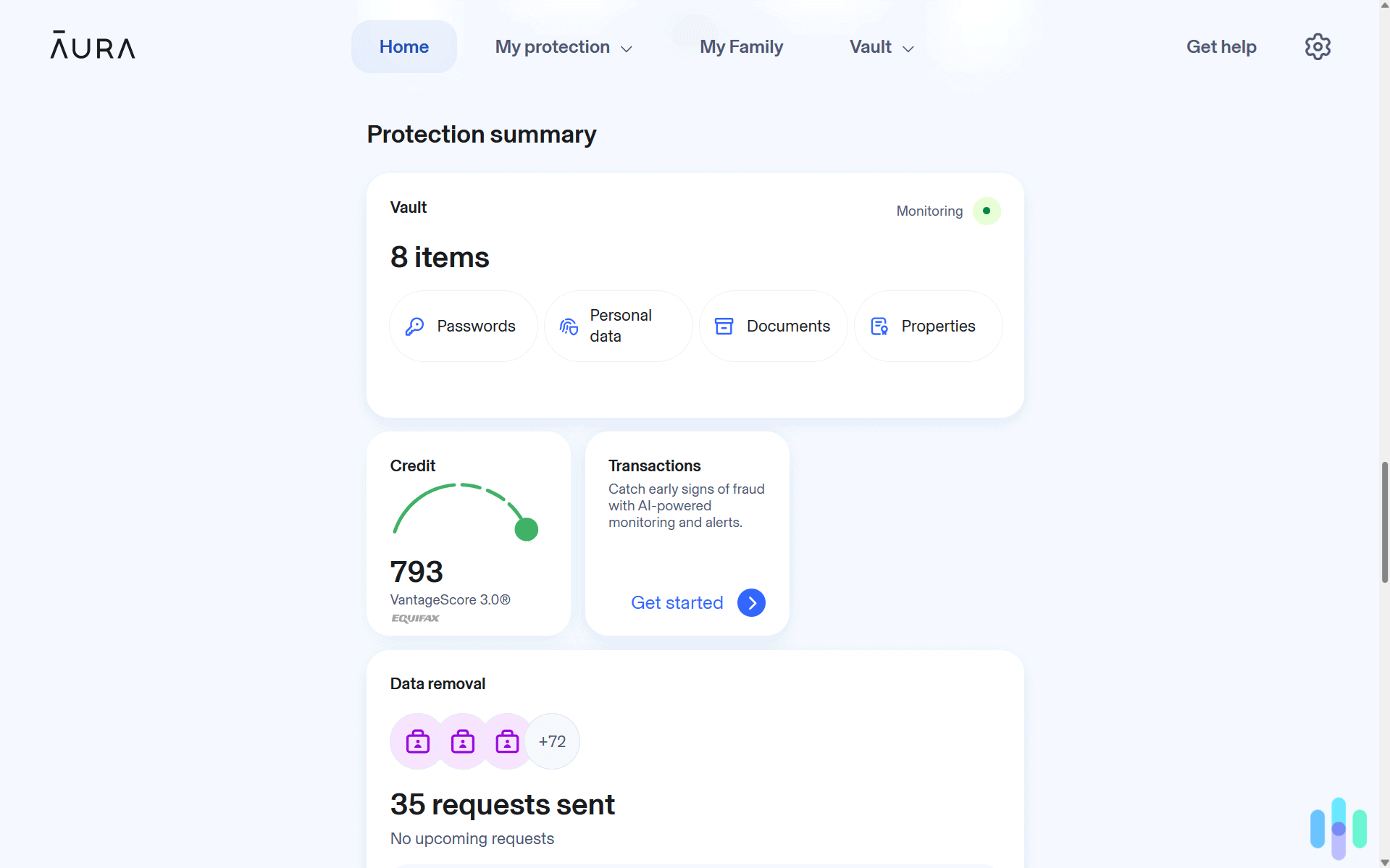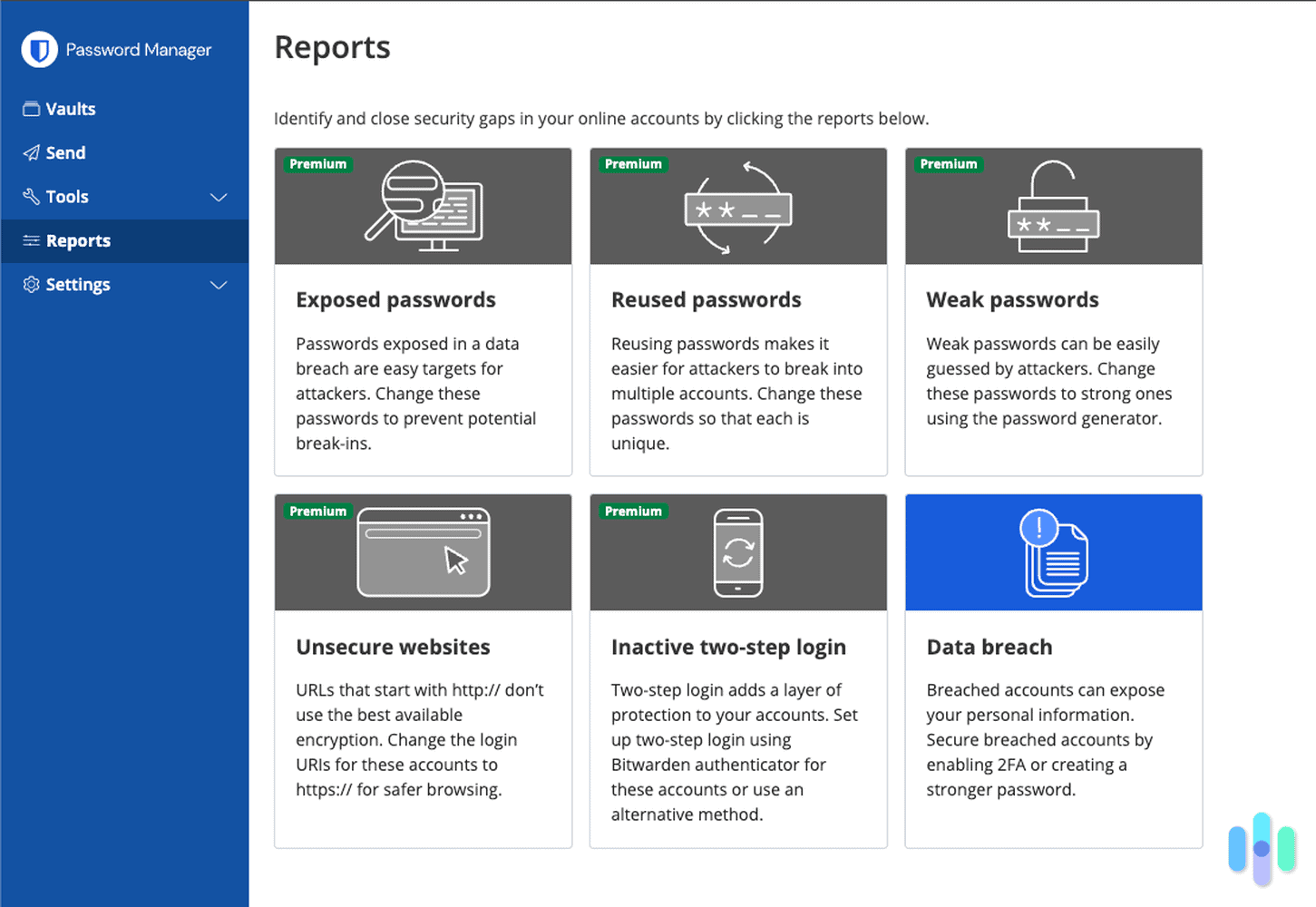IPVanish vs. NordVPN — Comparing the Fastest VPNs
IPVanish and NordVPN ranked as two of the fastest VPNs we tested, but NordVPN won this contest with its multihop feature and larger server network.


 Aliza Vigderman, Senior Editor, Industry Analyst
&
Aliza Vigderman, Senior Editor, Industry Analyst
&
 Gabe Turner, Chief Editor
Last Updated on Nov 03, 2025
Gabe Turner, Chief Editor
Last Updated on Nov 03, 2025

- A two-year plan currently costs just $3.39 per month.
- Multi-hop feature routes connection through two VPN servers and two layers of encryption.
- Over 8,000 servers spread across 127 countries worldwide.

- Access to ESPN, HBO, MLB TV, NBC Sports, and other streaming services
- Dynamic IP addresses
- Unlimited server switches and devices per subscription

When evaluating VPNs like NordVPN and IPVanish, we focus heavily on their security. We want to know how well they protect our data during every moment of connection. Yet we also need speeds that don’t remind us of the dial-up era.
Thankfully, NordVPN and IPVanish are two of the fastest VPNs we’ve tested and come packaged with important security features like kill switches and split tunneling. But which one does it better? We bought a subscription for NordVPN and IPVanish and compared them head to head. In the end, NordVPN won with its unique multihop feature and its larger server network. Here are all the results from our rigorous testing.
>>Read More: Speed Test Results From the Top VPNs
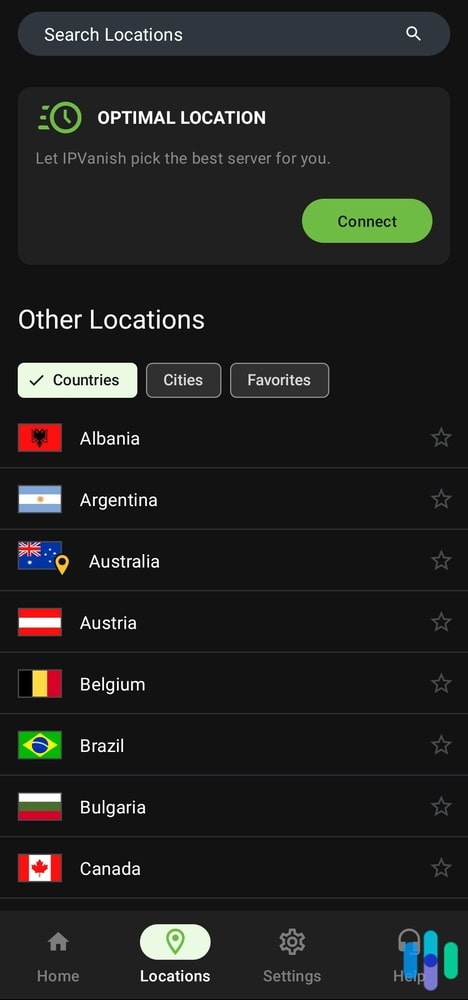
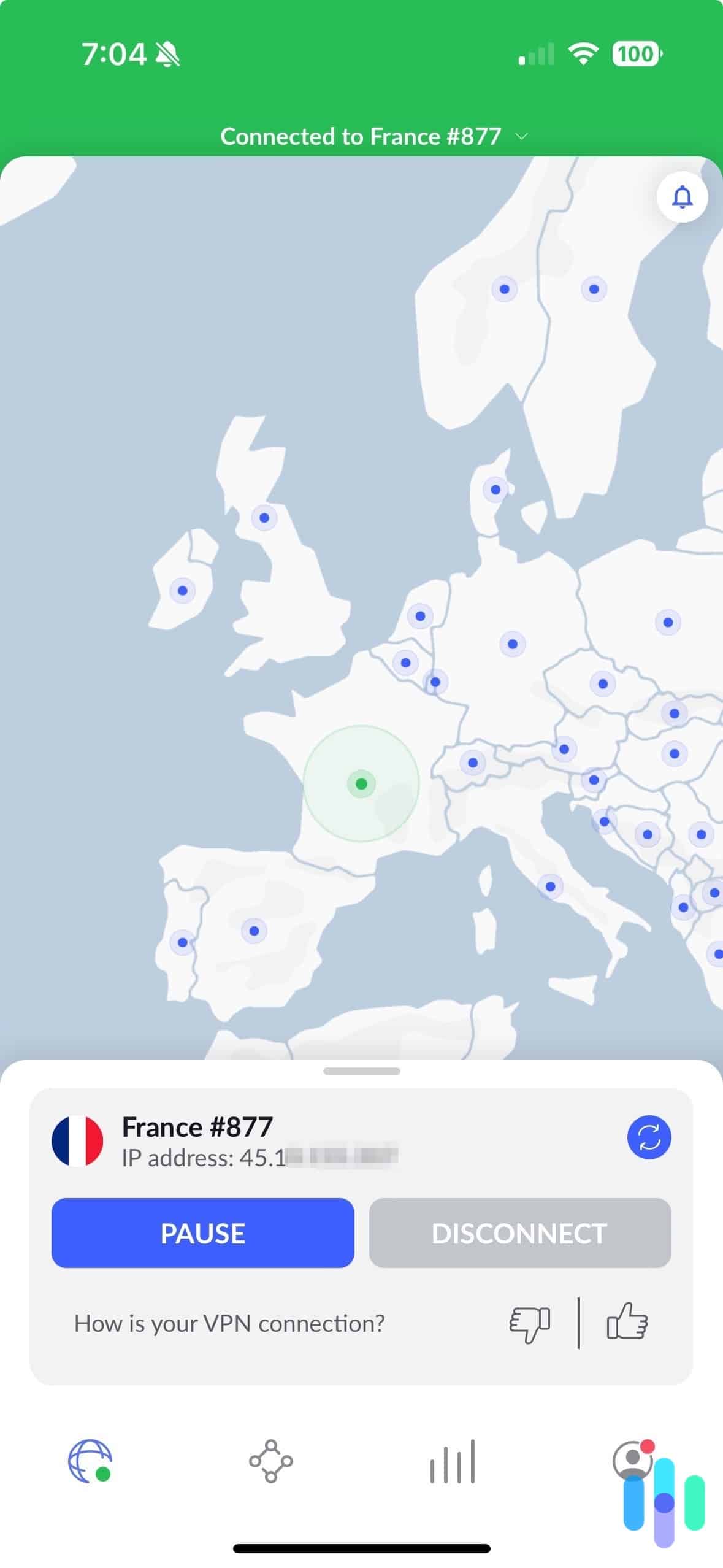
Specs Comparison: IPVanish vs. NordVPN Servers
Let’s start off with the easiest way to compare VPNs and look at the server networks of both IPVanish and NordVPN.
| Server Network Specs | IPVanish | NordVPN |
|---|---|---|
| Server count | 3,200+ | 8,000+ |
| Server locations | 108 countries | 127 countries |
When it comes to server infrastructure, more is definitely better. NordVPN maintains a substantially larger network than IPVanish, which directly impacts performance and flexibility.
Think of it this way: Having more physical servers means a VPN can handle more traffic from more users without bottlenecking. At the same time, offering more locations means it can serve a wider selection of IP addresses. And getting a U.S. IP address becomes easy. Almost all VPNs we’ve tested have servers in the U.S. But if you need an IP address from a country other than the U.S., definitely go with a VPN that offers more server locations. In this case, NordVPN is the clear winner.
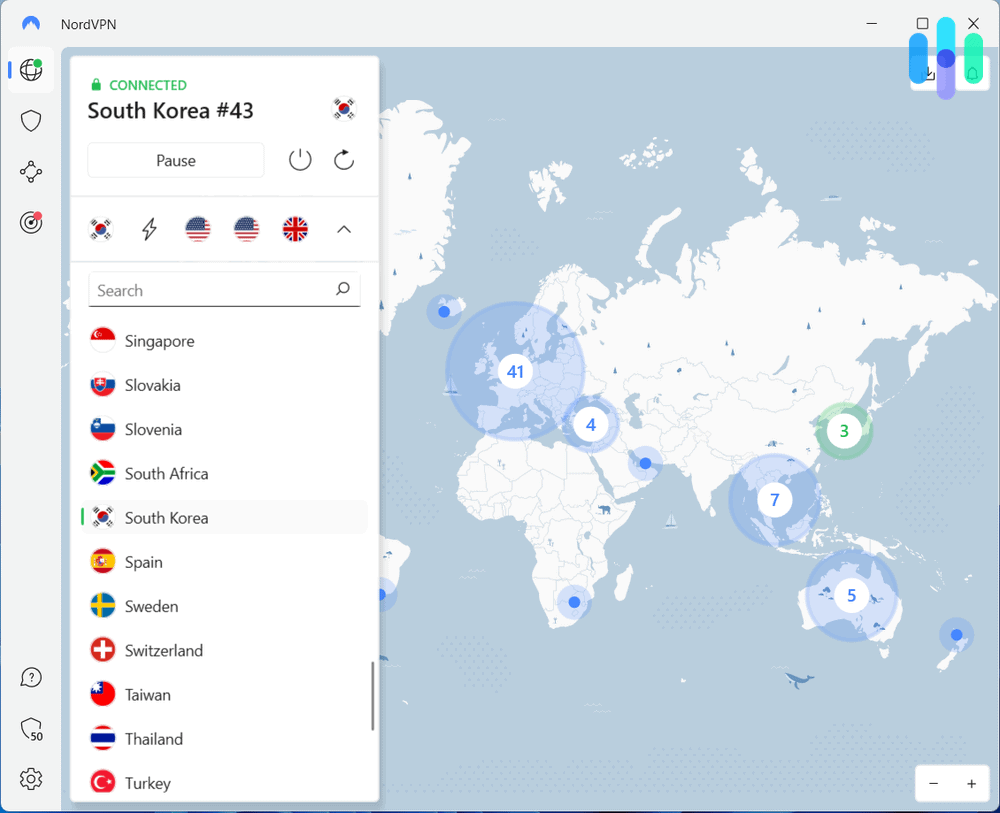
FYI: NordVPN offers one of the largest server networks of all the VPNs we’ve tested. Another VPN we recommend is ExpressVPN with 105 locations. See our NordVPN vs. ExpressVPN page for more comparisons.
Price Comparison: IPVanish vs. NordVPN Subscriptions
There are a few decent VPNs that are free, but the simple fact is the ones that offer the best online protection cost money.
We evaluated the current structures for both IPVanish’s pricing and NordVPN’s pricing. Both deliver solid value for their features. But it’s better if you see their pricing for yourself. Keep in mind, these are VPN-only subscriptions. NordVPN has pricier bundles that include its other products like the NordPass password manager, NordLocker cloud drive, and NordProtect identity theft protection. IPVanish doesn’t offer similar bundles, so we’re sticking to their VPN-only plans.
| Subscription Options | IPVanish | NordVPN |
|---|---|---|
| 1-month plan | $12.99 | $12.99 |
| 1-year plan | $39.99 ($3.33/month) | $68.85 + 3 months free ($4.59/month) |
| 2-year plan | $52.56 ($2.19/month) | $80.73 + 3 months free ($2.99/month) |
| Number of supported devices | Unlimited | 10 |
Even with NordVPN’s special deal, it’s clear that IPVanish is cheaper in the long run. That said, when considering the additional features and server infrastructure you get with NordVPN, the price difference becomes less significant. With that, let’s compare the features of IPVanish and NordVPN.
FYI: If you’re buying a VPN for your entire family, IPVanish is the more practical option because it lets you use the VPN simultaneously on as many devices as you want. NordVPN has a limit of 10 simultaneous connections.
Feature Comparison: Split Tunneling, Multihop, and More
All VPNs encrypt online traffic from your device and then route the encrypted data through a VPN server. But most VPNs also offer extra features to improve the overall functionality, and some VPN stealth-mode features vary from one service to another. While IPVanish and NordVPN share many core features, our hands-on testing revealed important differences in how they implement them.
| VPN Features | IPVanish | NordVPN |
|---|---|---|
| Kill switch | Yes | Yes |
| Split tunneling | Yes | Yes |
| Multihop | No | Yes |
| Ad blocking | Yes | Yes |
| Malicious site blocking | Yes | Yes |
Kill Switch
Picture this scenario: You’re browsing securely with your VPN when suddenly the connection drops. It happens to everyone. What’s important is that your data stays private even after the sudden disconnection. That’s where the kill switch comes in. When your VPN disconnects or when you manually disable the VPN, the kill switch disconnects your device from the internet to keep everything hidden.
Both NordVPN and IPVanish have a kill switch, but how their respective kill switches work differs slightly.
NordVPN applied a system-wide kill switch to our iOS, Android, and Linux devices. That meant the entire system or device got disconnected. But for Windows and macOS, we had a choice between the system-wide kill switch and application-based kill switch. The application-based option gave us granular control. We could shut down Chrome’s internet access while keeping Spotify streaming uninterrupted.
On the other hand, with IPVanish, it was a system-wide kill switch all around. There was no option for an application-based kill switch. We prefer having the flexibility of choosing what apps continue working and which ones disconnect from the internet immediately.
| Apps | IPVanish Kill Switch | NordVPN Kill Switch |
|---|---|---|
| iOS | System-wide | System-wide |
| Android | System-wide | System-wide |
| macOS | System-wide | App-based or system-wide |
| Windows | System-wide | App-based or system-wide |
| Linux | System-wide | System-wide |
Split Tunneling
Split tunneling is another nice feature that lets you choose what apps and websites run through the VPN and which ones use your normal connection. This means it won’t change your IP address, and you can continue enjoying faster speeds for apps that need it, such as video games. That’s why our favorite VPNs for Fortnite always offer split tunneling as a feature.
IPVanish and NordVPN both had split tunneling, but IPVanish’s split tunneling was more customizable. It let us exclude both apps and URLs, whereas NordVPN only let us exclude apps.
This distinction proved meaningful during our real-world testing.
We wanted to exclude Security.org from our VPN traffic. With IPVanish, we simply entered “www.security.org” in the Domain Split Tunneling section. Whatever browser we used, our traffic to Security.org was never encrypted. With NordVPN, we had to exclude the entire browser app. This meant sacrificing protection for all open tabs, not just the one we wanted to exclude. Plus, we had to exclude the exact browser app we were using.
Multihop
Multihop is a feature the most secure VPNs have, but not everybody needs it. Multihop essentially doubles your VPN connection — so that’s twice the VPN encryption and IP address routing. It’s an essential security option for journalists covering sensitive topics, whistleblowers exposing corruption, and activists operating in restrictive regions. We don’t recommend always using multihop because it severely sacrifices speed, but it’s a good option to have in a VPN’s arsenal.
Between IPVanish and NordVPN, only NordVPN offers multihop. However, the implementation is limited to pre-configured server pairs. A multihop server location is actually a pair of VPN server locations. The first one is the entry country, which is where your traffic will first be routed. The second one is the exit country, which is what your IP address location will change to.
Pro Tip: If multihop is important to you, we recommend Surfshark. In our Surfshark review, we saw that it can create unlimited multihop servers using all its 100 server locations. Surfshark calls it Dynamic MultiHop. We compared Surfshark and NordVPN here.
Ad and Malware Blocking
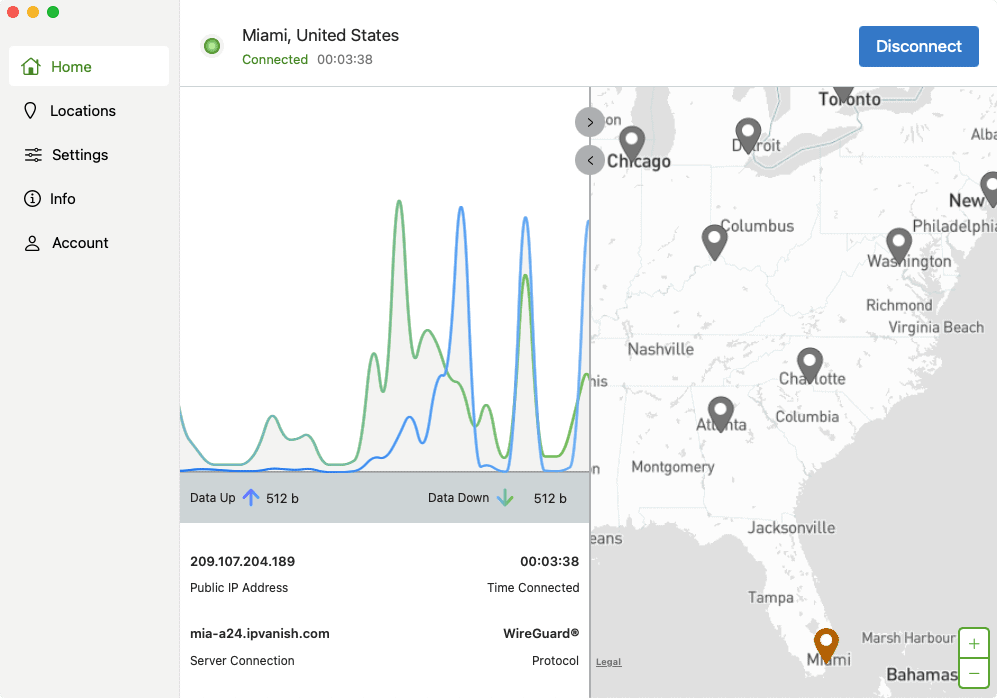
While VPNs and antivirus software serve different primary purposes, most VPNs now include security features beyond encryption. Some VPNs now offer ad and malware blocking, but only for the websites you visit. They won’t block malware from sources like an infected USB flash drive, bootleg programs, or downloaded files.
We tested the ad and malware blocking capabilities of both services using notoriously ad-heavy websites. While connected to IPVanish, most ads except for a couple of ad banners and a pop-up disappeared. With NordVPN, only the pop-up ad remained. Still, neither compared to the ad and malware blocking we got while testing TotalAV Antivirus, our favorite antivirus software out there.
>> Check Out:The Best IPVanish Alternatives (NordVPN makes the list)
Performance Comparison: IPVanish vs. NordVPN Speed
So far, NordVPN is slightly ahead. But the speed test is where IPVanish closed the gap.
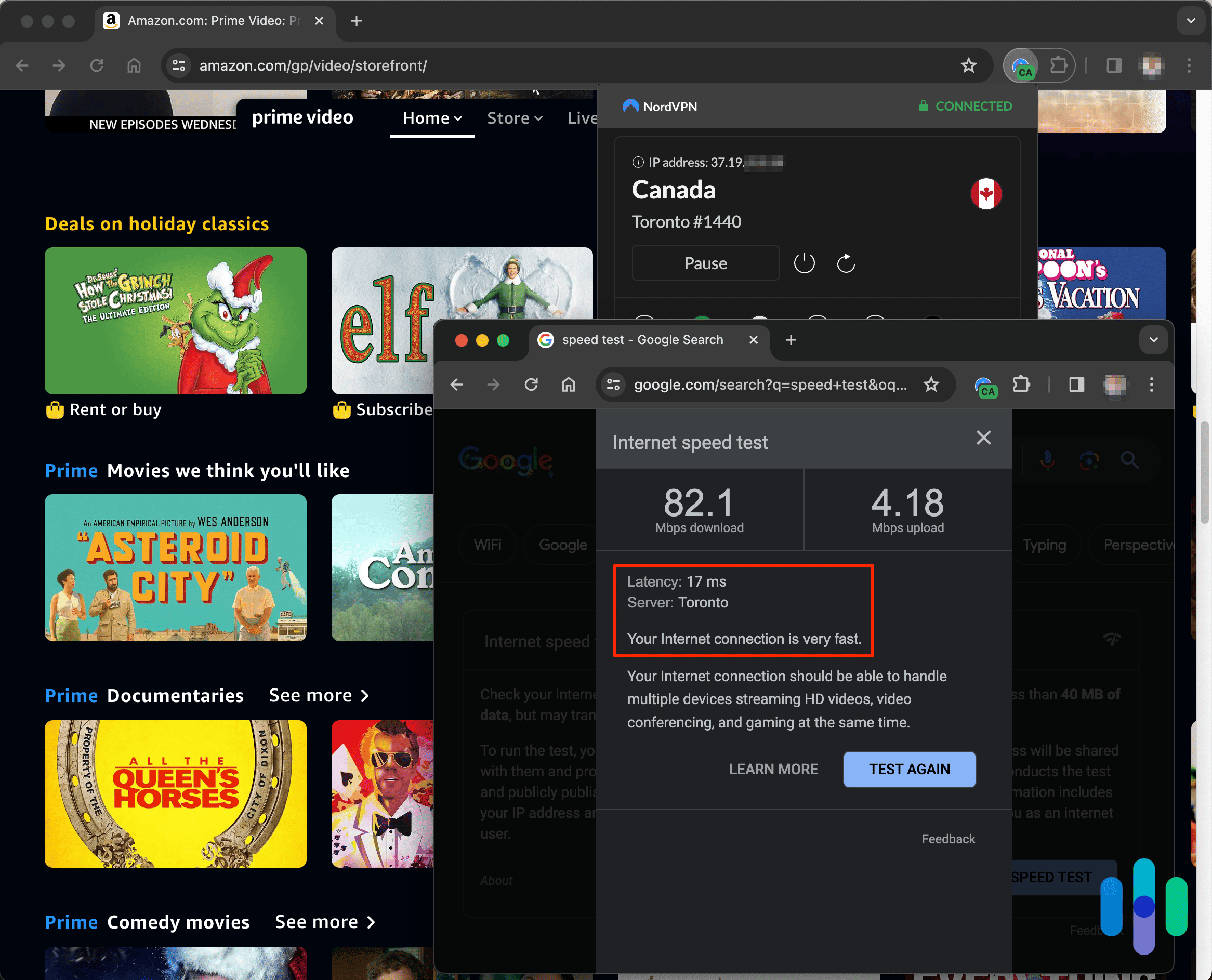
Our testing methodology ensures consistent and reliable results:
- We measured the internet speed without the VPN.
- We connected the VPN to a server in Australia and then ran another speed test.
- We computed the percentage of the decrease in upload and download speed and the increase in the latency.
- We repeated those steps 10 times and then averaged the results.
| VPN Speed Test Results | IPVanish | NordVPN |
|---|---|---|
| Upload speed difference vs. normal speed | Down 5.02% | Down 4.11% |
| Download speed difference vs. normal speed | Down 4.00% | Down 5.78% |
| Average latency (lower is better) | 86.1ms | 78.3ms |
FYI: What is latency? It’s the time it takes for data to travel from the source to the destination on a network. It’s measured in milliseconds, and the lower the number, the smoother the experience. With IPVanish’s and NordVPN’s latencies, they are both great VPNs for online gaming.
As you can see, there is little difference between IPVanish and NordVPN. These minimal speed differences mean both VPNs maintain excellent performance for streaming, gaming, and general browsing All VPNs will decrease your speed, but the amount will vary based on the location of the server you choose to connect to.
Privacy Policy Comparison: IPVanish vs. NordVPN Logging Policy
IPVanish and NordVPN both have a “no-logs” policy. That means they won’t log any VPN activity, from which websites you visited to what your real IP address was. But there’s a reason NordVPN made our list of the best “no-logs” VPNs and IPVanish didn’t.
NordVPN operates from Panama while IPVanish is headquartered in the United States. We’re all for homegrown companies, except when it comes to VPNs. You see, there is an international alliance called the Five Eyes, of which the U.S. is a member. Members of this alliance have rules that give their governments legal power to subpoena any customer data from any company in their jurisdiction. Panama is not a member of these agreements and has no mandatory data retention laws, making NordVPN more resistant to government data requests.
That’s not to say we don’t trust IPVanish. It has a “no-logs” policy, so even if the government requests information, IPVanish shouldn’t be able to provide anything useful that would compromise a user’s VPN activity. However, for users prioritizing maximum privacy protection, the jurisdiction difference is worth considering.
FYI: A VPN headquarter’s location isn’t such a big deal as long as the company has a “no-logs” policy. For example, Surfshark is based in the Netherlands, which is a member of the expanded Nine Eyes Alliance (same as Five Eyes but with nine member countries). Yet, Surfshark is still the second-highest option in our list of the best VPNs.
IPVanish vs. NordVPN: What’s The Verdict?
IPVanish and NordVPN both performed admirably and they are both great options. Your choice ultimately depends on your specific priorities — whether that’s maximum features, lowest price, or best performance. Based on the factors we compared above, here are our recommendations.
First, let’s talk about IPVanish. Choose IPVanish over NordVPN if you want an affordable VPN that can provide fast speeds and decent features. It’s particularly appealing for large households with its unlimited device connections and more granular split tunneling controls.
As for NordVPN, choose it over IPVanish if you want a feature-rich VPN that is both fast and secure. The multihop feature provides crucial extra security for sensitive activities, while its Panama jurisdiction offers stronger privacy protections.
In any case, we strongly recommend reading our IPVanish review and NordVPN review before making your final choice. We delved deeper into each VPNs features, performance, strengths, and weaknesses in those reviews. Also check out our VPN buying guide for tips on how to choose a VPN for your specific use.
IPVanish vs. NordVPN FAQs
-
Between IPVanish and NordVPN, which VPN is faster?
Both VPNs are fast, but IPVanish is marginally faster especially in the download speed department. We notched a speed loss of exactly four percent while connected to a server in Australia, whereas NordVPN’s Australia server reduced our download speed by nearly six percent.
-
Is IPVanish more affordable than NordVPN?
Yes; by the numbers, IPVanish is cheaper than NordVPN per month. That holds true even with the three free months NordVPN throws into its annual subscription. That said, NordVPN offers features that IPVanish doesn’t, such as multihop.
-
Which VPN protocols do IPVanish and NordVPN offer?
Both VPNs can use OpenVPN and WireGuard, but NordVPN made a few security tweaks to WireGuard to create NordLynx.
-
Between NordVPN and IPVanish, which VPN is better for getting a U.S. IP address?
Both VPNs offer extensive U.S. server coverage with each maintaining servers in 22 cities. That’s enough servers for each VPN to reliably provide U.S. IP addresses.
-
Which VPN is better for streaming between NordVPN and IPVanish?
In our testing, both VPNs unblocked streaming content quite well. That said, we recommend NordVPN because it has dedicated obfuscated servers, which means the streaming service won’t know you’re connected to a VPN.
